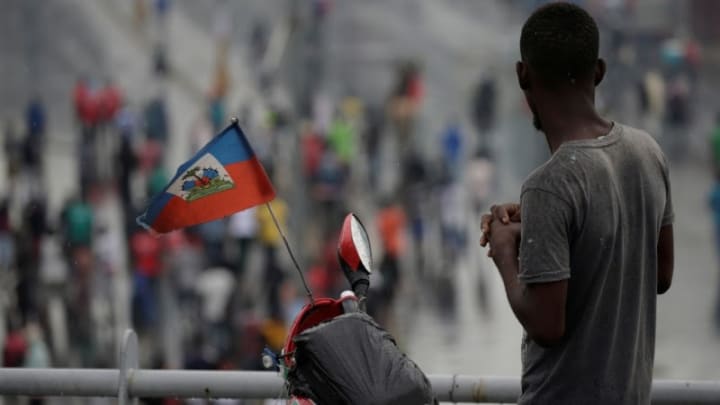|
Getting your Trinity Audio player ready...
|
By Brian A. Nichols
Brian A. Nichols is the Assistant Secretary of State for Western Hemisphere Affairs at the United States Department of State.

Haiti faces a crossroads in its journey to a safe, democratic, and thriving future. The July assassination of President Jovenel Moise occurred during great political uncertainty, with long-postponed elections, only 10 of 149 elected positions in the legislature filled, and gangs perpetrating rising violence that victimized innocent people. Thousands of Haitian migrants embarked on the dangerous path of irregular migration across the Americas. In August, the 7.2-magnitude earthquake that struck southern Haiti killed more than 2,200 people and destroyed 138,000 homes. Then in October, the 400 Mawozo gang claimed responsibility for kidnapping 17 missionaries, including 16 United States citizens.
U.S. embassies and consulates have no higher responsibility than protecting U.S. citizens. This core responsibility comes with extraordinary challenges right now. Our hearts go out to the victims of this terrible crime, their families and communities, and all those impacted by kidnappings in Haiti. We continue to work with Haitian authorities, including the Haitian National Police and our international partners, to bring these U.S. citizens to safety.
These kidnappings and other incidents might lead outsiders to question if Haiti can hope for a better future. But after more than two decades of working on Haiti-related issues, I’ve learned that Haitians have a remarkable and steadfast commitment to define their own future. Their active debate about the political way forward reflects this reality.
The Biden-Harris administration committed to supporting a Haitian-led solution to the country’s challenges. Already, the U.S. supported Haiti in the wake of these recent challenges, mobilizing support for the investigation into Moise’s assassination, including by investigating links to possible crimes committed in the United States. After the earthquake, the President designated USAID Administrator Samantha Power to personally oversee the U.S. response, which included more than $56 million in humanitarian assistance.
It will not be easy, but dialogue and unity remain essential for charting a new course forward.
Even as we mobilized quickly to help the Haitian government receive returning Haitians and provide immediate support, we enhanced our focus on the country’s long-term future by working with Haitians to address the underlying causes that drive many of them to leave their families and communities behind.
U.S. won’t pick winners and losers in Haiti
I travelled to Haiti for my first foreign trip as Assistant Secretary of State for the Western Hemisphere. During my visit a few weeks ago, I heard the voices of civil society, business and political leaders, along with Prime Minister Ariel Henry, all calling for unity and dialogue. I emphasized that the U.S. government seeks a broad and inclusive, and most importantly, Haitian vision, of the way forward — as it should be.
A divide separates the many political actors in Haiti, as well as members of the diaspora. The United States won’t pick winners and losers in the challenge to establish a durable, transparent government acceptable to a majority of Haitians. We hope that Haitians with ideas and dreams about building a democratic future will engage broadly with each other to chart their own path to restoring democracy through free and fair elections when conditions permit.
Successful restoration of Haiti’s democratic institutions and faith in the country’s democracy requires dialogue and unity.
The Haitian diaspora’s constructive role
I also want to underscore the important and constructive role the Haitian diaspora can, should and does play in supporting a Haitian solution. In meetings with the diaspora, both in Miami before I traveled to Haiti and in a follow-up call on Oct. 5, we discussed how they can contribute their energy and experiences to support Haiti’s civil society. In turn, we listened to the desires of the diaspora in how to rebuild Haiti and committed to working with them, and Haitian citizens, to secure a better future for the next generations of Haitians.
I have seen the Haitian people confront and rise above many challenges. I know they face a difficult time and realize that the future can look bleak. It will not be easy, but dialogue and unity remain essential for charting a new course forward. The Biden-Harris Administration remains committed to supporting the Haitian people, as you take the path to restore your democracy, make your country safer and more secure, and create opportunities to build a better future in Haiti.

